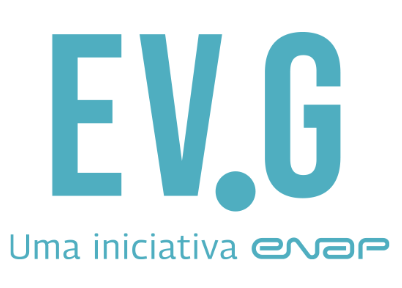Mais de 500 cursos certificados e gratuitos, oferecidos pela plataforma oficial Gov.br.
Descubra agora qual será o próximo passo na sua jornada profissional!
Cansado de sentir que está ficando para trás devido à falta de qualificações?
Gov.br oferece mais de 500 cursos gratuitos com certificação oficial!


Cursos gratuitos do Gov.br: quais as vantagens e desvantagens?
O cursos gratuitos oferecidos pelo Gov.br tornaram-se uma das principais ferramentas para qualificação profissional acessível no Brasil.
Existem mais de 500 cursos on-line, com certificação oficial, desenvolvido por instituições públicas de renome.
No entanto, apesar de todos os benefícios, é também essencial reconhecer a limitações e desafios que a plataforma apresenta, para que sua escolha seja consciente e alinhada aos seus objetivos.
Abaixo, você encontrará uma análise detalhada do principais vantagens e desvantagens dos cursos gratuitos do Gov.br.
Vantagens dos Cursos Gratuitos do Gov.br
1. Completamente grátis
O acesso aos cursos é completamente grátis, desde a matrícula até a emissão do certificado. Não há taxas ou custos ocultos, o que democratiza o acesso à educação e torna esta uma excelente opção para quem deseja se qualificar sem comprometer o orçamento.
Além disso, como os cursos são oferecidos por instituições públicas, o serviço é mantido com foco em educação cidadã e profissionalização, sem interesses comerciais.
2. Certificação oficial reconhecida
Todos os cursos oferecem certificados oficiais emitidos por instituições respeitáveis, como a Escola Nacional de Administração Pública (ENAP), o que acrescenta credibilidade e valor ao currículo do participante.
Esses certificados podem ser utilizados em diversas situações, como:
- Comprovação de formação em processos seletivos e concursos públicos.
- Desenvolvimento profissional para promoções ou progressões de carreira.
- Atividades complementares exigidas pelas instituições de ensino superior.
Ter um certificado com endosso do governo reforça a seriedade do aluno e seu comprometimento com o autodesenvolvimento.
3. Acesso democrático e inclusivo
Um dos pontos fortes da plataforma é a sua inclusão: qualquer pessoa com acesso à internet pode participar, independentemente de idade, educação ou formação profissional.
Embora muitos cursos sejam destinados a servidores públicos, a maioria está aberta a toda a população brasileira. Esta política amplia o acesso a educação de qualidade e promove igualdade de oportunidades.
4. Flexibilidade total de horário
Os cursos são oferecidos em um formato autoinstrutivo, o que significa que os alunos podem estudar quando e onde quiserem, de acordo com sua disponibilidade e ritmo de aprendizagem.
Essa flexibilidade é ideal para quem precisa conciliar os estudos com outras atividades, como trabalho e família, sem abrir mão de uma educação de qualidade.
Além disso, não há necessidade de deslocamento ou presença física, permitindo que pessoas de todas as regiões do país — incluindo as áreas mais remotas — participem.
5. Diversidade de tópicos
O catálogo da plataforma inclui uma ampla gama de áreas de conhecimento, permitindo que os alunos escolham cursos que se alinhem aos seus interesses e objetivos profissionais. As principais áreas incluem:
- Gestão pública e políticas públicas.
- Direito administrativo e legislação.
- Administração, finanças e orçamento público.
- Tecnologia da informação e inovação.
- Desenvolvimento pessoal e habilidades socioemocionais.
Essa variedade faz da plataforma uma excelente opção para quem busca tanto especialização e conhecimento geral.
6. Atualizações constantes
Os cursos passam por atualizações periódicas, garantindo que o conteúdo permaneça relevantes e alinhados com novas legislações e tendências.
Tópicos contemporâneos como o Lei Geral de Proteção de Dados (LGPD), transformação digital, inovação no setor público, e sustentabilidade são frequentemente adicionados ao portfólio.
Isso garante que os alunos tenham acesso a conteúdo atual, alinhados ao mercado de trabalho.
7. Simplicidade e conveniência
A experiência do usuário na plataforma é intuitivo e direto. De registro para conclusão do curso e emissão de certificados, todo o processo é simples e eficiente.
Não há necessidade de passar por processos seletivos complexos ou longos trâmites administrativos, facilitando o acesso aos cursos rápido e sem complicações.
Desvantagens dos Cursos Gratuitos do Gov.br
1. Falta de interação com os instrutores
Como a maioria dos cursos são autoinstrucional, o que significa que os alunos conduzem seus estudos de forma independente, não há interação direta com instrutores ou tutores.
Isso pode ser uma desvantagem para aqueles que valorizam apoio pedagógico, a possibilidade de fazer perguntas em tempo real ou participar de discussões e atividades em grupo.
A ausência de fóruns ativos ou comunidades de aprendizagem também pode limitar rede e compartilhamento de experiências entre os participantes.
2. Metodologia mais teórica
Embora alguns cursos incluam atividades práticas, muitos ainda seguem uma modelo mais tradicional, com foco em materiais de leitura e completando avaliações objetivas.
Para alguns alunos, especialmente aqueles que preferem mais metodologias dinâmicas e interativas, esse modelo pode parecer menos envolvente e distante das práticas de ensino modernas.
3. Necessidade de autodisciplina
O flexibilidade oferecido pela plataforma exige que os alunos tenham uma alto grau de organização, motivação e disciplina.
Sem prazos rígidos ou obrigações formais, muitos alunos podem ter dificuldades para manter o ritmo e concluir os cursos.
Aqueles que não têm um perfil de aprendizagem autodirigida ou uma rotina de estudos bem estruturada pode acabar acumulando disciplinas incompletas.
4. Não substitui um diploma acadêmico completo
Embora os cursos sejam úteis, eles não substituem um diploma universitário, programa de pós-graduação, ou treinamento técnico.
Eles são ideais para quem procura complementar seu currículo, adquirir novas habilidades ou atualizar seus conhecimentos, mas não devem ser vistos como equivalentes a programas de educação formal de longo prazo.
É importante estabelecer expectativas realistas: estas são uma ferramenta de treinamento poderosa mas não conferem um título acadêmico.
5. Requisitos tecnológicos mínimos
Embora acessível a qualquer pessoa com acesso à Internet, é necessário ter recursos tecnológicos básicos: um computador, tablet ou smartphone, com conexão estável e compatibilidade com a plataforma.
Aqueles que não possuem tais equipamentos ou que enfrentam dificuldades de infraestrutura podem ter limitações em seguir os cursos satisfatoriamente.
Conclusão: Vale a pena fazer os cursos gratuitos do Gov.br?
Sim, vale muito a pena! Os cursos gratuitos do Gov.br representam uma iniciativa exemplar na democratização da educação no Brasil, oferecendo treinamento de qualidade com certificação oficial para qualquer pessoa interessada em melhorar pessoal e profissionalmente.
As vantagens são significativas: livre acesso, flexibilidade, diversidade de temas e credibilidade. No entanto, é essencial estar ciente das limitações: falta de interação direta com os instrutores, necessidade de autodisciplina e o fato de que ela não substitui a educação acadêmica formal.
Se você está procurando complemente sua educação, adquirir novas habilidades, ou preparar-se para competições e promoções, esta é uma excelente oportunidade.
Por outro lado, se o seu objetivo é obter uma grau acadêmico ou experimentar um ambiente de aprendizagem mais interativo, talvez seja necessário combinar os cursos do Gov.br com outros formatos educacionais.
Quer saber como escolher os melhores cursos, como se inscrever e como aproveitar ao máximo essa oportunidade? Confira o artigo completo e descubra todas as dicas que preparamos para você!
Site
